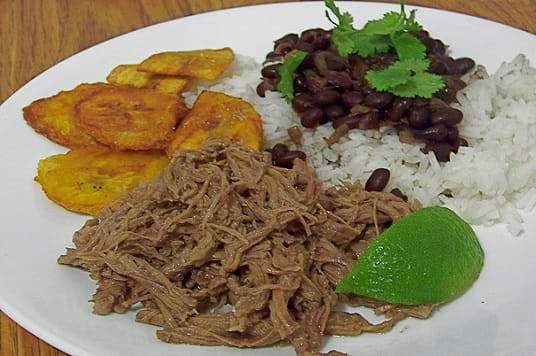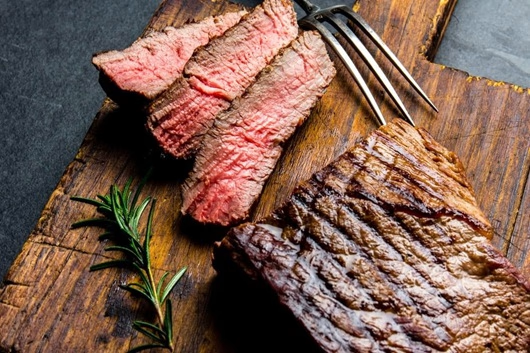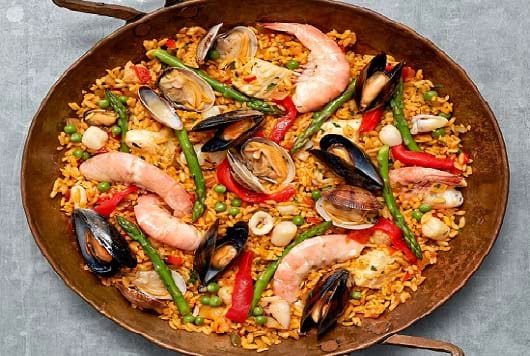Cuban Cuisine
By delving into CubanCookbook.com typical authentic Cuban foods recipes, the culinary fusion of Taíno, Spanish, African, French and Caribbean cultures is revealed. If you are a food lover, you are one of us. We invite you to discover the culture of Cuba through its varied and exceptional gastronomy that make Cuban food truly unforgettable. Buen apetito!
Featured Cuban Recipes
 |
 |
| |
|
Vaca FritaVaca Frita is a Cuban dish consisting of fried and shredded skirt or flank steak. Topped with sauteed onions with a squeeze of lime, and served with rice and black beans. It is prepared by sauteeing slow cooked steak. |
Mojo Cuban Roasted PorkFlavorful and succulent this Cuban Mojo Pork recipe is infused with a citrusy, garlicky, mojo marinade, guaranteeing that this Cuban-style roast pork delivers a mouthwatering explosion of flavors in every tender, juicy bite. |
| |
|
 |
 |
| |
|
Chicken Fricassee Stew - Fricase de Pollo Cubano French influence brought this dish to Cuba in the 1800's but the Cuban style of cooking is evident. This chicken stew recipe that has onions, garlic, red peppers, potatoes, green olives with pimentos, and is cooked in a tomato and spice based sauce is traditional in Cuba. |
Cuban BBQ Marinated Sirloin SteakA Marinated Sirloin steak cooked in the grill with bold and exciting flavour, and a tenderness that will rival the best steakhouses. The CubanSteak Marinade sauce recipe it’s deliciously robust and the perfect flavor pairing to rich beefy steaks. It’s incredibly easy to make and goes well with many side dishes./td>
|
Scroll To Top
 |
 |
| |
|
Seafood Stew (Zarzuela de Mariscos)Zarzuela de Mariscos is this insane, over-the-top amazing shellfish stew. It may well be the best seafood stew on planet earth. I’m quite serious. It pushes all the right comfort and joy buttons. |
Ground beef Cuban Style (Picadillo)Picadillo is a traditional Cuban dish. The name “Picadillo” comes from the Spanish word “Picar”, which translates to “mince” or “chop”, describing the dish texture nicely. It can be served in a wide variety of ways, for example, you can serve it over white rice and beans, with mashed potatoes, in empanadas, or even as a sandwich in Cuban bread. |
Scroll To Top
Scroll To Top
About CubanCookbook.com
This site tells the story of Cuban and Hispanic cooking, sharing with our friends the recipes and articles that tell our story in the foods we eat. Our visitors will find family recipes as well as sophisticated ones from professional chefs. CubanCookbook.com offers something for everyone from everyone that we hope you enjoy.
Thank you for visiting Cuban Cookbook
We are adding recipes all the time
Contact Us »